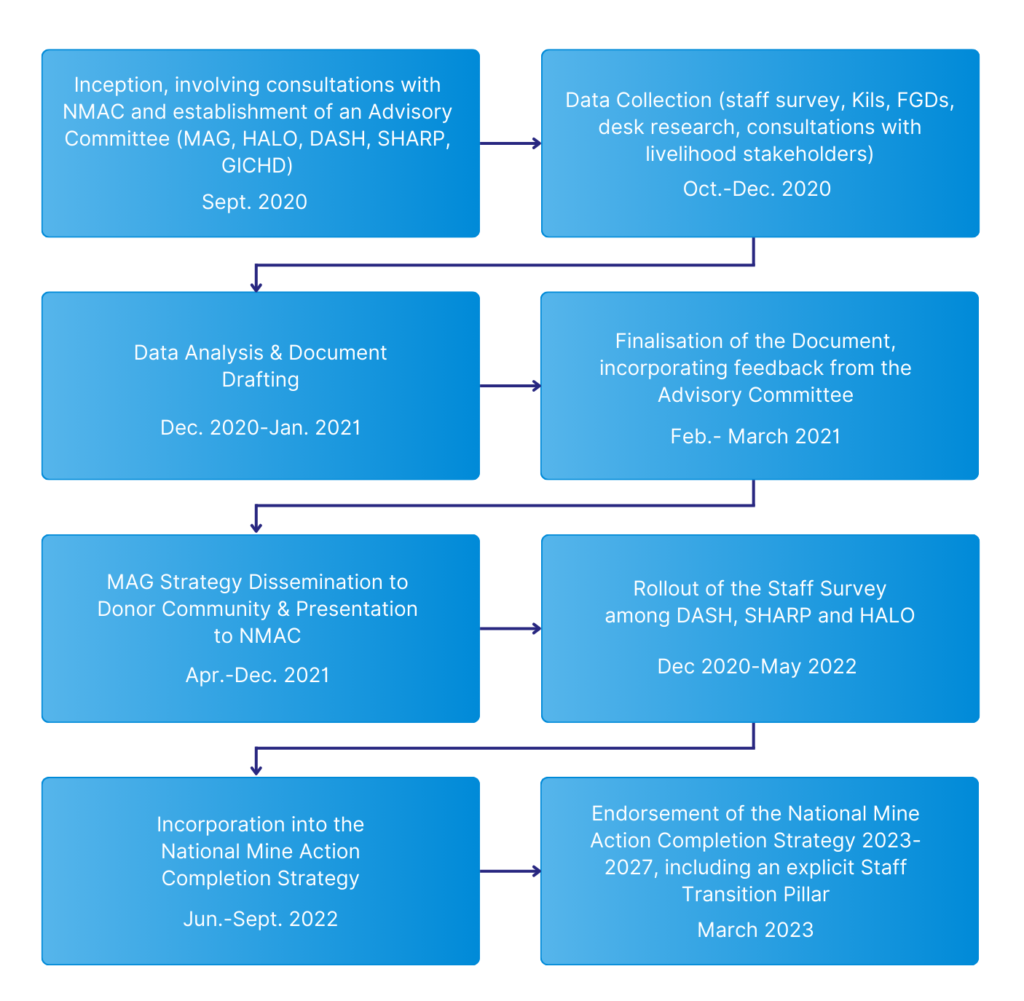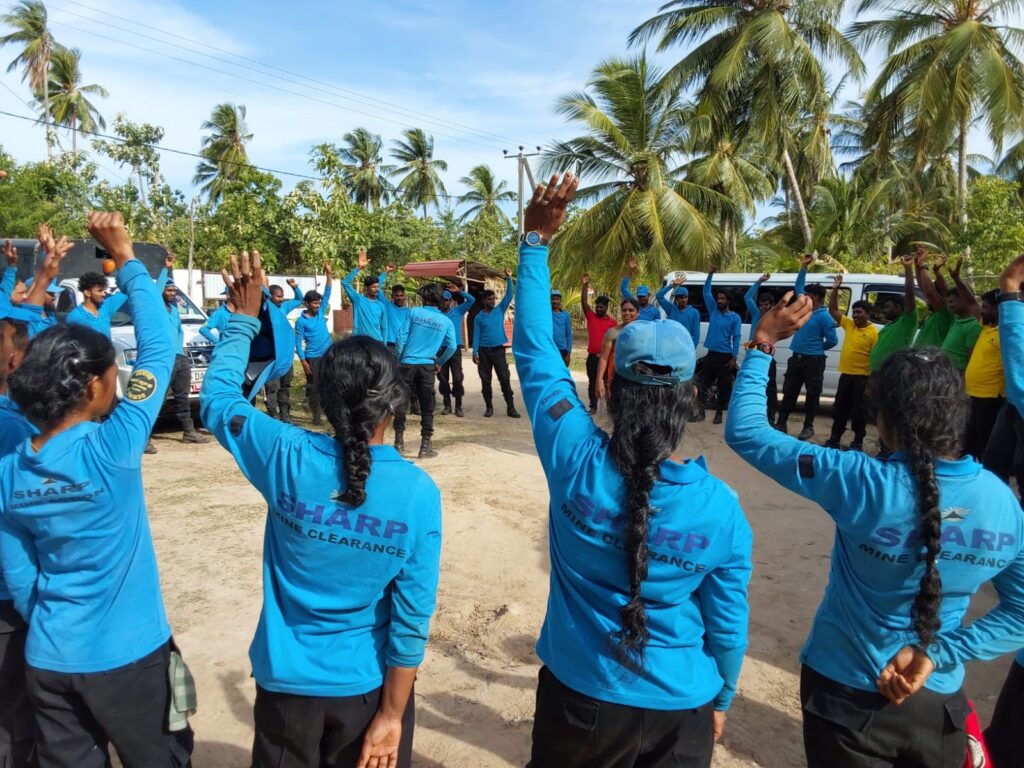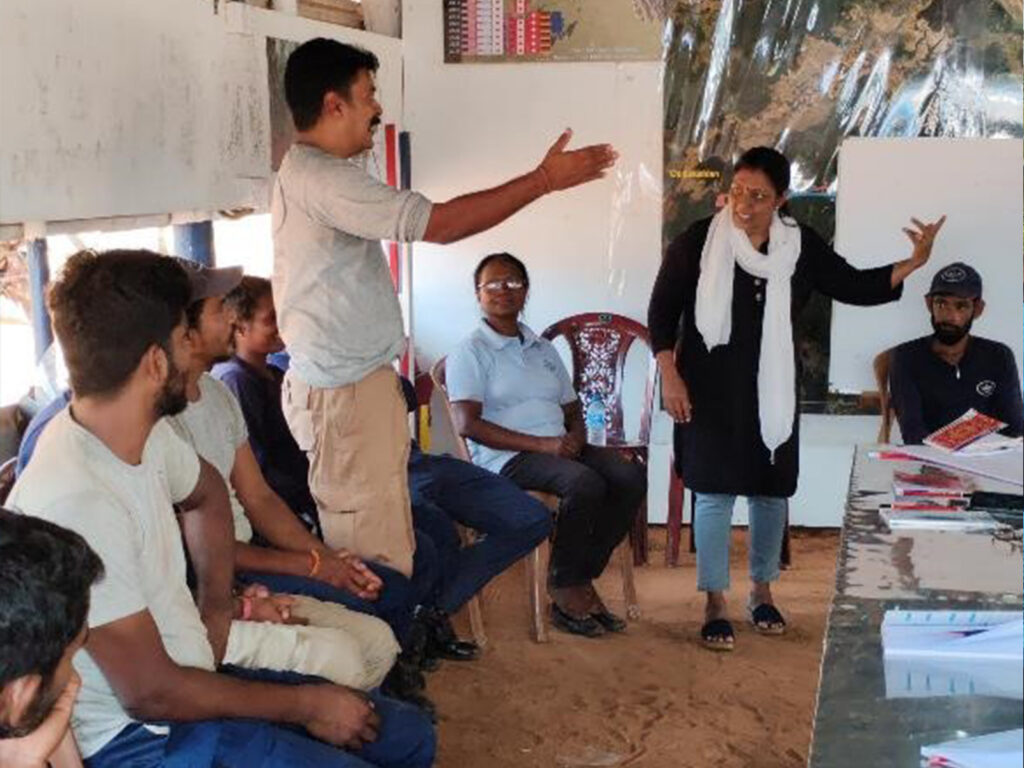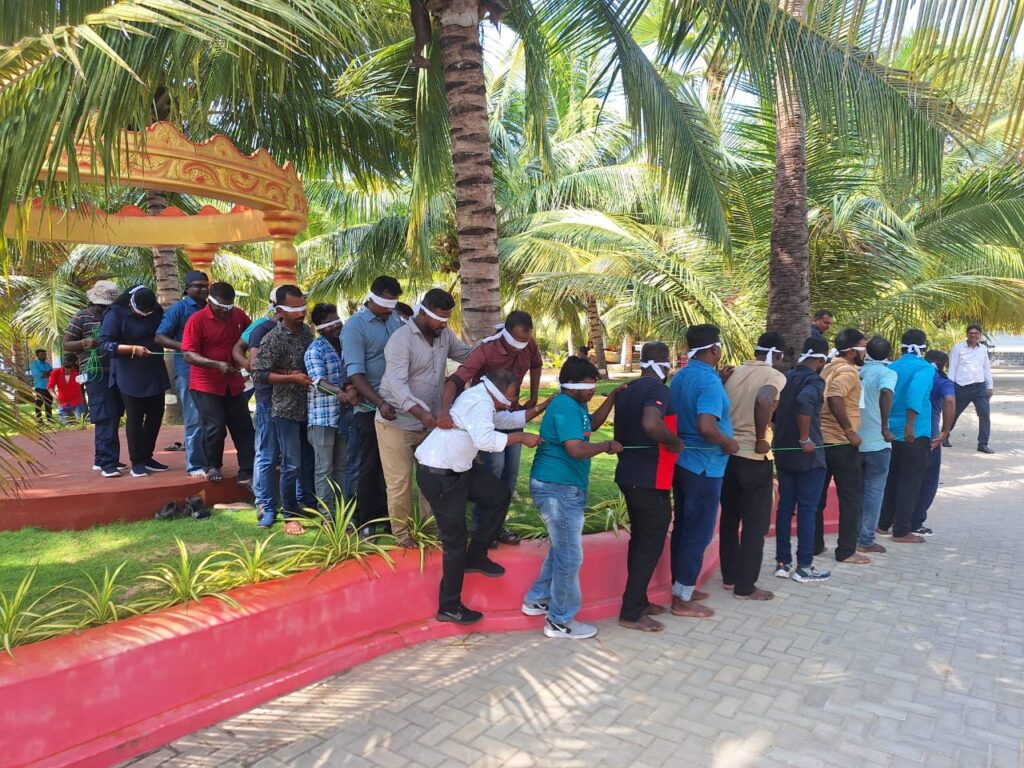Background & Context
Over a decade after the civil war ended, Sri Lanka has reached the final stage of mine action activities. The combined workforce of the four humanitarian mine action operators (MAG, HALO, DASH, and SHARP) comprises over 3,000 staff, including one-third women, residing in the Northern and Eastern Provinces.
With the anticipated completion of all known contaminated areas by the end of 2027, the Government of Sri Lanka is committed to ensuring that relevant plans are in place to ensure a smooth demobilization of mine action staff, as outlined in Strategic Objective 4 “Staff Transition” of the National Mine Action Completion Strategy 2023-2027. This strategic objective draws upon the framework developed by MAG for its own workforce, with MAG assuming a leadership role in staff transition within the sector.
Deminers are at high risk of unemployment and poverty upon the closure of the mine action sector, a situation that could have implications for regional stability if adequate support is not provided. Since 2002, demining has provided formal and well-paid job opportunities in conflict-affected districts of the northern and eastern provinces where economic progress is still lagging compared to the rest of the country. Despite limited education or formal qualifications, the demining workforce earn a salary above the local average and significantly higher than what they were perceiving before joining the mine action sector, especially female staff. While the technical skills they have acquired in demining are not easily transferable to any other occupation outside the mine action sector, deminers who constitutes two-thirds of the workforce have gained highly valuable employability skills that industries with acute labor shortages could benefit from.
MAG took the initiative to develop a Skills Acquisition and Post-demining Livelihood Transition Strategy in 2020-2021, to support MAG’s demining staff to transition to alternative economic activities when made redundant, and to support the incorporation of mine action staff transition into Sri Lanka’s new national mine action strategy. Representatives from DASH, SHARP, HALO and GICHD were members of the Advisory Committee, while NMAC was heavily involved in the process of developing the transition strategy.




